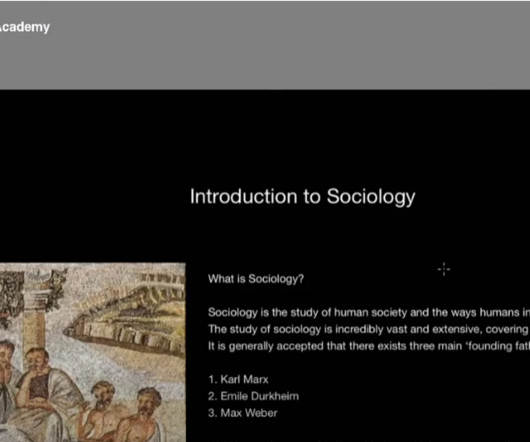We Know How Much Planning Time Teachers Get on Average. Is It Enough?
ED Surge
MARCH 14, 2024
Given the amount of planning time he has each day, along with the assistance of an AI-powered app, Robert can easily turn a hard copy reading passage and questions into an interactive quiz for the students in his elementary classroom. Parsing education data into snack-sized servings. But if he wanted to design something more engaging, where the kids are making cutouts or drawing as part of the lesson, well — there’s just not enough time in his 45-minute conference period to design that.



















Let's personalize your content